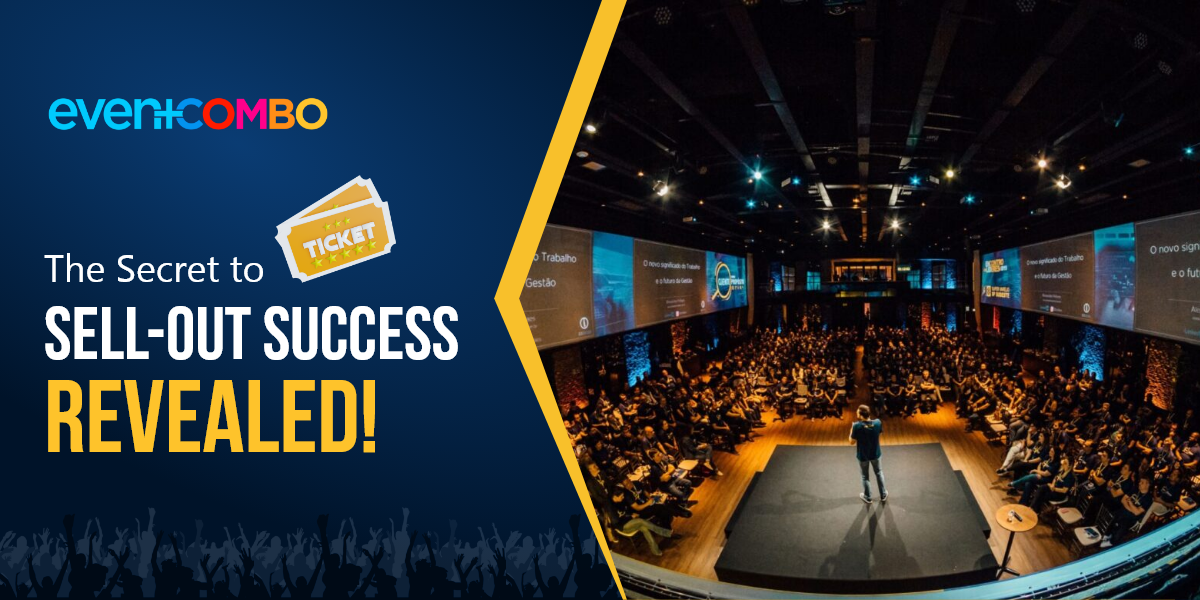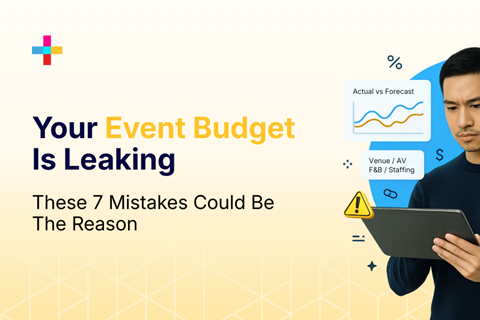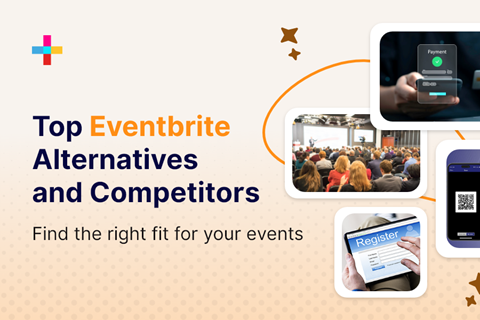

A conference, often referred to as a "meeting of minds," is an invaluable tool for business development. If it’s well organized, your brand awareness and visibility within your industry increase significantly. This is why companies go to great lengths to ensure their conferences are successful. In the US alone, over 1.5 million meetings take place annually, with nearly 85% of business owners considering them crucial for organizational success.
So, how can you make sure your conference stands out and achieves goals? The key is effective conference marketing. Implementing creative marketing strategies tailored to your target audience is essential for increasing attendance and making your event a success.
Let’s explore innovative methods for successfully marketing your conferences.
How to Market a Conference – Key Strategies
1. Understand Your Audience Segments
To ensure your conference attracts the right attendees, start by identifying the key segments of your target audience. Focus on those most likely to attend and benefit from your event. For a B2B company, this means pinpointing your ideal customer profile to analyze which audiences would be most interested.
Leverage firmographic data—details about company size, industry, and revenue—and technographic data, which reveals the technology or services your leads use and how they use it. Additionally, review your website and social media traffic to identify whom to target. Researching your competitors' audiences can also provide valuable insights into potential attendees you might be missing.
2. Create Personalized Conference Marketing Content
Once you understand your audience segments, their preferences, and behaviors, create personalized content to engage them effectively. Tailored messaging will boost brand awareness, drive engagement, and increase conference attendance. Your content strategy for conference marketing should include:
Additionally, publish press releases and blogs about the event to build anticipation. Share recorded content from previous conferences to give new attendees a taste of what to expect. For existing customers, include conference details in your regular emails and newsletters.
To streamline this process, you can use a conference management solution. It helps you manage email campaigns and target specific audience segments. The platform can also send invitations and reminders to your targeted attendees, ensuring no one misses out.
3. Promote Your Conference on Social Media
Harnessing the power of social media is one of the most effective ways to market your conference. Here are some strategies to maximize your reach:
4. Highlight Networking Opportunities
One of the main draws of attending a conference is the chance to learn, meet like-minded individuals, and build professional relationships. Highlighting these networking opportunities can significantly boost attendance. Here are some tips:
5. Build a Conference Website for Maximum Attendance
An online presence is crucial for conferences, just as it is for any event. Gone are the days when conference marketing relied solely on print journals and noticeboards. Today, a dedicated website is a decisive way to market a conference.
Use an event website builder to design a website that highlights your key messaging and objectives. Ensure it clearly communicates the value attendees will gain. The website should serve as a hub for real-time updates, including schedule, venue details or changes if any, key speakers, and sessions.
A fully branded website with persuasive copy and interactive elements can build anticipation and excitement. Potential attendees will be eager to join and experience everything your conference promises. Also, include multiple registration options, past reviews, and testimonials from previous conferences to enhance experience.
6. Find and Onboard Influencers
Engage influencers to talk about your conference and generate interest. Research thought leaders in your domain through web searches or LinkedIn. Use social listening tools to identify top public profiles in your industry. Influencers often use hashtags to connect with their audience, so look for trending hashtags on Twitter and Instagram to find influential personalities with large followings.
Once you partner with influencers, have them create buzz about your conference on their social media channels, blogs, and podcasts. Consider collaborating with them on a pre-conference webinar to further boost interest.
7. Offer Incentives to Boost Attendance
Offering incentives can significantly enhance your conference marketing efforts by creating a sense of urgency and adding value. Here are some effective incentive ideas:
By integrating these strategies, you can maximize attendance and ensure your conference is a success.
Conclusion
You’ve put a lot of effort into organizing an insightful conference, and you want to see that hard work pay off, right? Without effective marketing and promotion, achieving your KPIs can be next to impossible. The conference marketing ideas and tips mentioned above will not only help you increase attendance but also enable you to acquire valuable leads and gain a deeper understanding of your target audience. Align these strategies with your conference objectives and captivate your audience like never before.
Planning your next conference? Explore Eventcombo’s all-in-one platform to streamline everything, from registration and pre-event promotion to onsite engagement and post-event analysis. https://bit.ly/3R9bkuP

Every event organizer knows the sinking feeling of watching a well-planned budget unravel. That initial estimate of $400,000 suddenly balloons to $540,000 due to unexpected fees and overlooked expenses.

Eventbrite is a common name in the event management space, but if you’re here, chances are it isn’t checking all your boxes. Like many professionals, you may be looking for Eventbrite alternatives or exploring...

Networking events remain the backbone of professional growth, whether you're building a business, recruiting talent, generating leads, or seeking strategic partnerships.